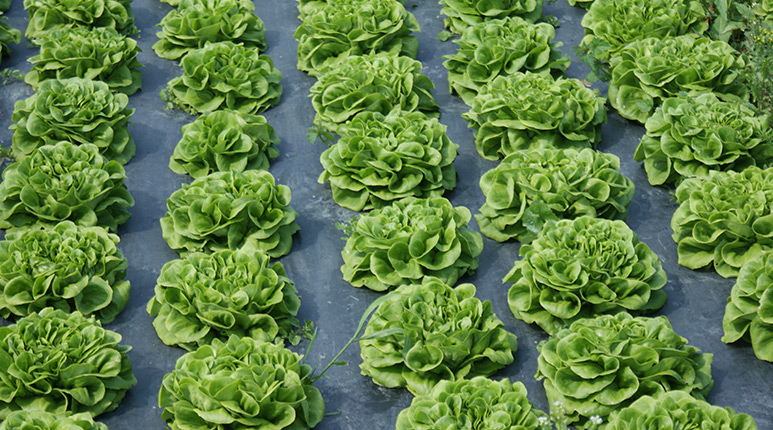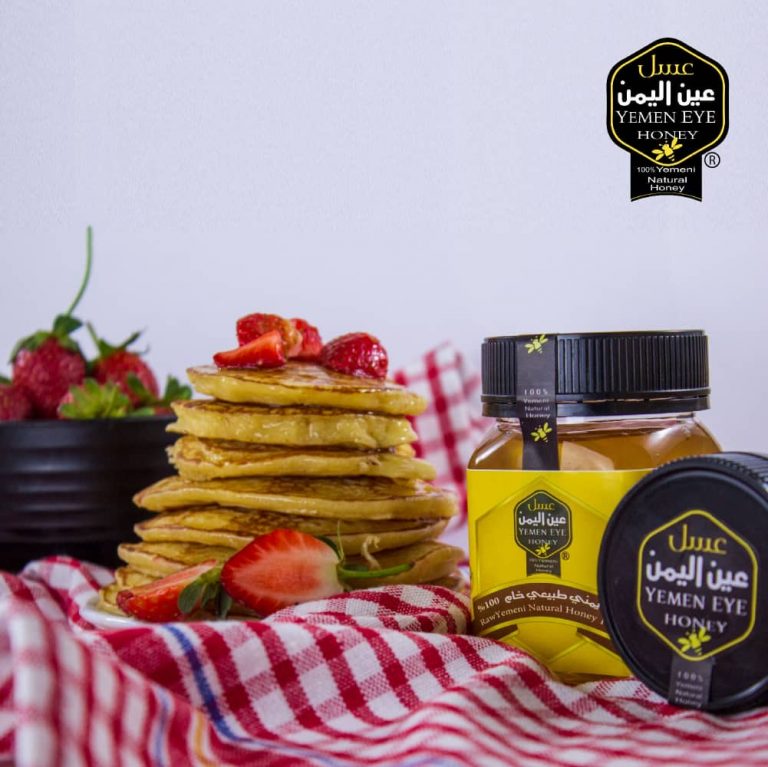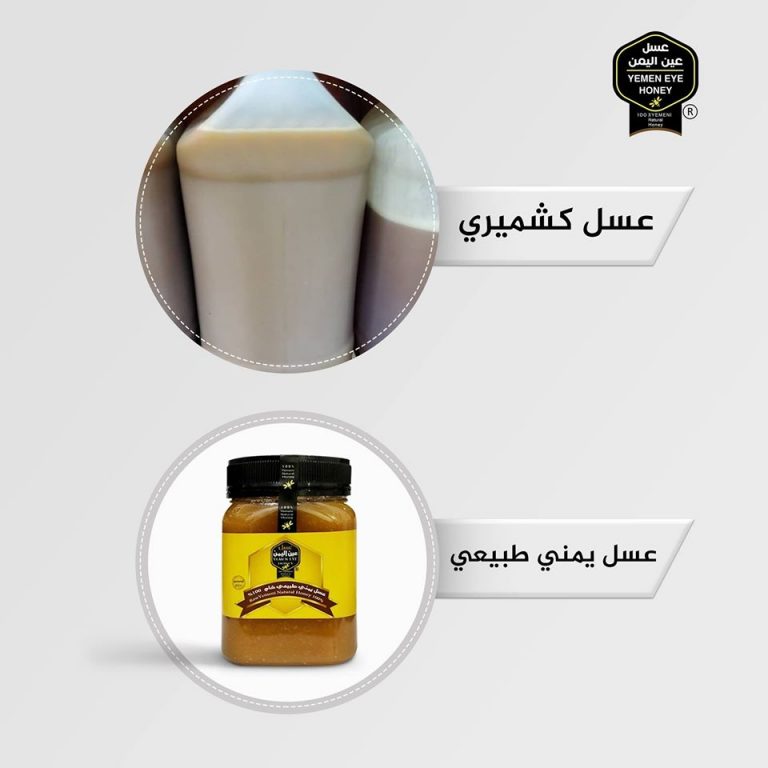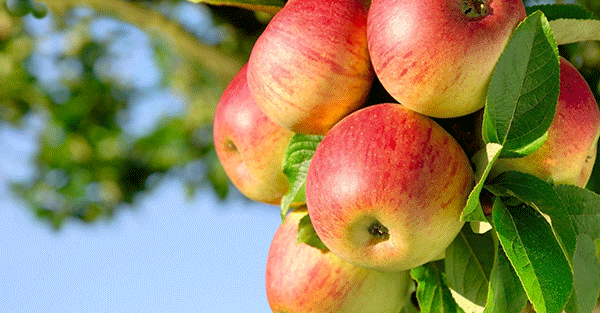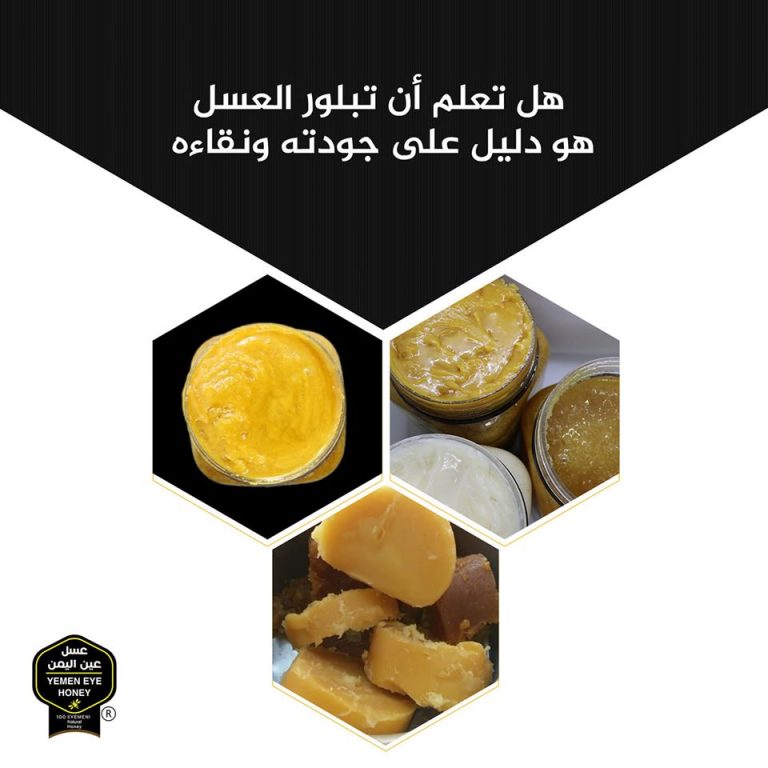
Beekeeping and honey production are very ancient crafts in Yemen. It dates back to the tenth century BC. The history of Yemeni beekeeping is linked to the prosperity of economic life in Yemen at that time. The honey trade was ranked fourth in the country’s economies. Yemenis are still concerned with beekeeping until the present time. Yemeni honey enjoys a prestigious position and great commercial fame.
The area of the Republic of Yemen is about 555,000 square kilometres. Most of this area is deserts or mountainous regions. The area of vegetation cover is 2.4 million hectares, of which 2 million hectares are natural vegetation cover, and the area of agricultural land is 0.4 million hectares.
The bee pastures in Yemen are distinguished by their diversity, their wide spread in most regions of Yemen, and their different flowering times. This great diversity in vegetation and topography reflects itself on the diversity of honey produced in the Yemeni environment. Accordingly, the Yemeni beekeeper travels throughout the year in search of suitable bee pastures for his bees.
The bee sector in Yemen faces many challenges, including the following:
The bee sector in Yemen faces many challenges, including the following:
- The use of old municipal hives, which are prevalent in Yemen, which prevents obtaining an adequate yield of the honey crop, as the percentage of beekeepers’ use of modern hives does not exceed 7% of the total number of hives in Yemen.
- Modern hives require large areas, and due to the nature of mountain pastures, it is difficult for the beekeeper to provide these areas.
- Weak marketing of beekeepers, as most of the value of the honey product goes to dealers and middlemen.
- Non-compliance with specifications and standards by many beekeepers when packing and packaging the product in healthy plastic boxes
- competition with imported honey.
- Lack of rain in some areas.
- Negligence of some beekeepers in controlling pests and diseases leads to the death of many bees.
- Lack of experience in beekeeping operations for some beekeepers leads to the death of many bees during the winter period.
These challenges were and still are faced by the beekeeping sector in Yemen, as it is known that the nature of beekeeping in Yemen is based on nomadism and movement and follow the areas of rainfall and does not depend on seasonal cultivations in agricultural areas.
However, in the current situation, there are major challenges and problems that have emerged as a result of the ongoing war and have intensified in recent years, which have greatly affected the beekeeping sector, which may extend for many years, the most prominent of which are:
- The limited ability to move and travel as a result of the obstacles created by the war, cutting off roads and insecurity. Which affected the numbers of bee colonies and the death of many of them.
- Preventing the entry of beekeepers to many coastal areas, where there are many pastures as a result of planting mines in these areas. Consequently, many seasons are lost and bee pastures are not used in these areas.
- The high price of oil derivatives and their absence prevented movement from one region to another, and many beekeepers lost as a result.
- The use of agricultural pesticides indiscriminately large and unregulated due to the chaos resulting from the war.
- The absence of state laws during the war period had a great impact on beekeepers. Which was regulating the beekeeping sector in Yemen.
- One of the most prominent and dangerous challenges at the present time is the illegal logging, which was limited to rural areas, but intensified as a result of the lack of gas and oil derivatives, as the use of coal instead of diesel and gas increased by bakeries and bakeries in the main cities, and this greatly affects the future of bee pastures in Yemen. for many years.

